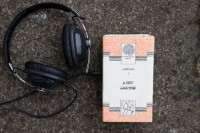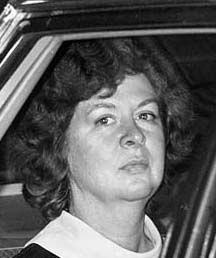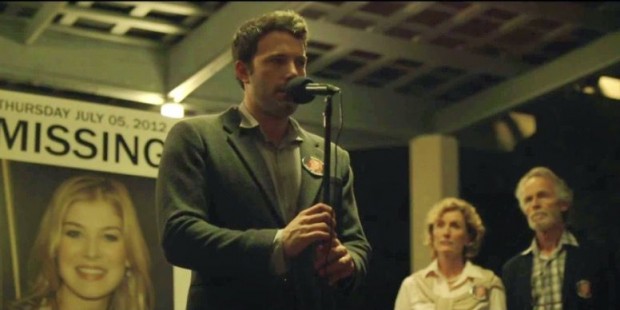
Murder mystery author Jane Harper has six tips for writing a bestselling novel
abc.net.au – Sunday June 3, 2018

In 2014, Jane Harper decided she was finally going to do it — she was going to write a book.
She enrolled in an online writing course, and in just twelve weeks had completed her first draft of The Dry.
The fast paced, hard-edged crime novel was the kind novel Harper had always wanted to write.
"I like books with a bit of mystery and suspense," the former journalist says.
It was an instant hit. Critics loved The Dry for its elegant structure, Australian voice, and Harper's ability to vividly paint a landscape in the grip of drought.
Readers loved it for its tight pace, its awkward, lovable hero and its satisfying "whodunnit" reveal.
The book raced on to bestseller lists around the world, won multiple awards, and was sold in to more than 20 foreign language territories.
Today, Harper is still riding high on the success of The Dry.
The movie rights have been sold to Reece Witherspoon's production company, and the script is complete. Harper's second book, Force of Nature, has been another bestseller, and she has another on its way.
So, how does she do it?
While at the Sydney Writers' Festival, Harper revealed the secrets to writing a bestselling novel. Writers, grab your pencils...

Ireland's thriving literary magazine scene: space for tradition and experimentation
irishtimes.com – Saturday May 19, 2018

Reading the mission statements of Irish literary journals, a common theme emerges: the desire to offer writers the space to develop ideas that may not otherwise find a platform. From the more established titles such as Dublin Review, Crannóg and The Stinging Fly, which published its first issue 20 years ago this month, to more recent outlets like The Bohemyth, Banshee and gorse, fostering talent new and old is the backbone of “the little magazine”.
A vibrant journal scene with a roots-up feel to it has developed in Ireland in the past decade. There are currently in the region of 30 publications across print and online media seeking submissions multiple times a year. This has coincided with a growing enthusiasm for creative writing in general, with all of the major colleges in Ireland and many other cultural organisations offering programmes ranging from evening courses for beginners to two-year MFAs (Master of Fine Arts).

It Used To Be Perilous To Write Fanfiction
kotaku.com – Thursday May 17, 2018

Fanfiction is hardly a new phenomenon, but that doesn’t always mean it was safe to write. For a time, in certain fandoms, writing fanfiction could get you a letter from a lawyer. Now, however, the internet has given fandom enough leverage to allow the dubiously legal practice of writing about other people’s characters continues to flourish.
Fanfiction, the act of writing original stories based on someone else’s creative work, exists in a sketchy legal space. While derivative and transformative works are technically protected under fair use, many authors do not believe fanfiction falls in that category. Authors that still dislike or disallow fanfiction cite an experience that author Marion Zimmer Bradley had in 1992. Bradley not only liked but encouraged fanfiction in the initial stages of her fandom, but as the story goes, she realized that an upcoming novel of hers would touch on themes that were in a fanfiction she had read, and she reached out to the author to attempt to negotiate a deal so as to avoid a lawsuit. Although not all parties can agree on how much of Bradley’s novel had been written or exactly what the terms of the agreement were with this fanfic author, Bradley said that she decided to scrap the novel rather than risk a lawsuit. This story loomed large in the memories of authors like Anne McCaffrey and George R. R. Martin, who cited it as an example of what can happen if you don’t protect your copyright. While Martin allows fanfiction as long as you don’t send it to him, McCaffrey banned all fanfiction for her series Dragonriders of Pern from 1992 until 2004.

Writing for the improbable bookshelf
thebookseller.com – Monday May 14, 2018

I make stories for improbable bookshelves. I once came across this term in an Italo Calvino essay and I’ve held on to it ever since, as it so closely describes the way I work.
I recently wrote a new version of the Persephone myth, but it can’t be found in a bookshop or online. Persephone’s Footsteps is an altitude-responsive story and map that has to be carried on a journey through a city. As Persephone climbs higher – first to escape the Underworld and then to escape the polluted city streets – the listener must climb higher to reveal more of her story. At the moment, there is only one version of this work in existence. Is it scalable? Perhaps, but my real hope is that it’s my approach to writing that’s scalable – that writers might be inspired to explore new ways of writing, bringing enlivened approaches to literary forms.

How to write a book: 11 tips on creating a bestseller from published authors
cosmopolitan.com – Monday May 14, 2018

While it's easy to romanticise writing a novel on the side, knowing how to actually write a book and where the F to start can be a little daunting. Here, 11 published authors, who will be at Hay Festival between 24 May - 3 June, share their tips and tricks for starting your next masterpiece. And who knows? It might end up being a bestseller.

Use a Placeholder in Your Writing to Keep From Getting Stuck
lifehacker.com – Friday May 4, 2018

Sometimes the hardest part about writing isn’t finding ideas or knowing how to begin, it’s maintaining a flow so you actually finish what you started. It’s not quite total writer’s block since you’re already on the move, but a writer’s road block, if you will. This trick that Star Trek: The Next Generation staff writers used can help you keep on truckin’.
The writers of TNG were great at coming up with interesting plot lines for the crew of the Enterprise, but they weren’t actual scientists or experts in space travel. So, when that kind of stuff came up in the script, they often used a placeholder word for the science-y things and worried about fixing it later. Writer Ron Moore explains the process to Syfy:

How did I get here? My Writer’s Journey from Reluctant Author to Movie Option
By Geri Spieler
Author
firstwriter.com – Sunday April 15, 2018

I have numerous requests asking me to write about my journey from a reluctant author to having a movie option for my book. It all startyed with a Tweet.
Here is how it goes:
I had no intention of writing a book. As I’ve said to many friends and strangers, I had no aspirations of being an author. Books take too long and are too difficult to write.
Well, we know that changed. It was a circumstance that turned me into an author. It began as a curiosity when I was approached by a would-be presidential assassin, Sara Jane Moore, the 45-year-old mother and doctor’s wife who pulled a gun from her purse, took aim and fired a bullet at the head of President Gerald Ford and missed his head by a mere six inches.

9 tips for writing your own murder mystery, from a published author
cosmopolitan.com – Monday March 26, 2018

So, you’ve got a great idea for a murder mystery novel – what do you do next? Writing a book can feel daunting, but if you're dead set (wahey) on writing a thriller, AJ Waines, number one bestselling author on Amazon, shares the inside know-how on getting that brilliant story out of your head and on to the page below.

Why You Should Write for Free
lifehacker.com – Tuesday March 20, 2018

If you want to write for a living, you should write for free. Hell, if you already do write for a living, you should write for free. And that free writing should be some of your best work.
Unless you’re already famous for something else, you’ll write for free before you write for money. And if you try to make it your living, you might spend the rest of your life trying to make your paid writing look more like your free writing. Here’s the writing you probably should do for free, and the writing you probably shouldn’t:

Odds and Ends: The false romance of writing
thepostathens.com – Monday March 19, 2018

A great book was written way back in 1918, then expanded on in 1959 and in other editions. The Elements of Style by William Strunk and E.B. White is essentially the Swiss army knife of writing – small and bland, but wildly useful when you need it. The book aside, the foreword written by Roger Angell, White's stepson, resounds with all writers: “Writing is hard, even for authors who do it all the time.”
There is a pretty big misconception about writing, and that is that it’s this romantic affair between the author and a blank piece of paper or an empty Word document. Media outlets make writing out to be some odd thing in which you go on a date with your words; in reality, it’s a long-term relationship in which you sit at opposite ends of the couch and argue over what to watch on TV.
Get the free newsletter | Submit a news item or article | Get Writers' News for your website





